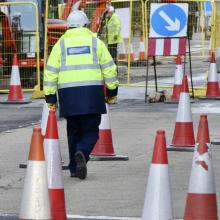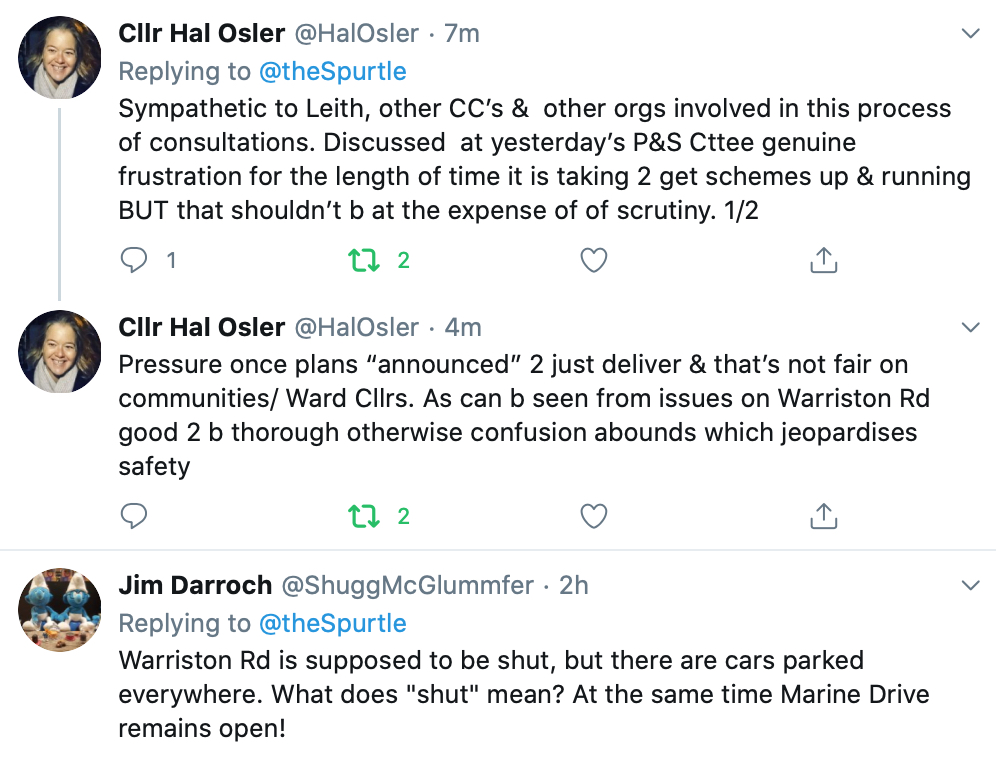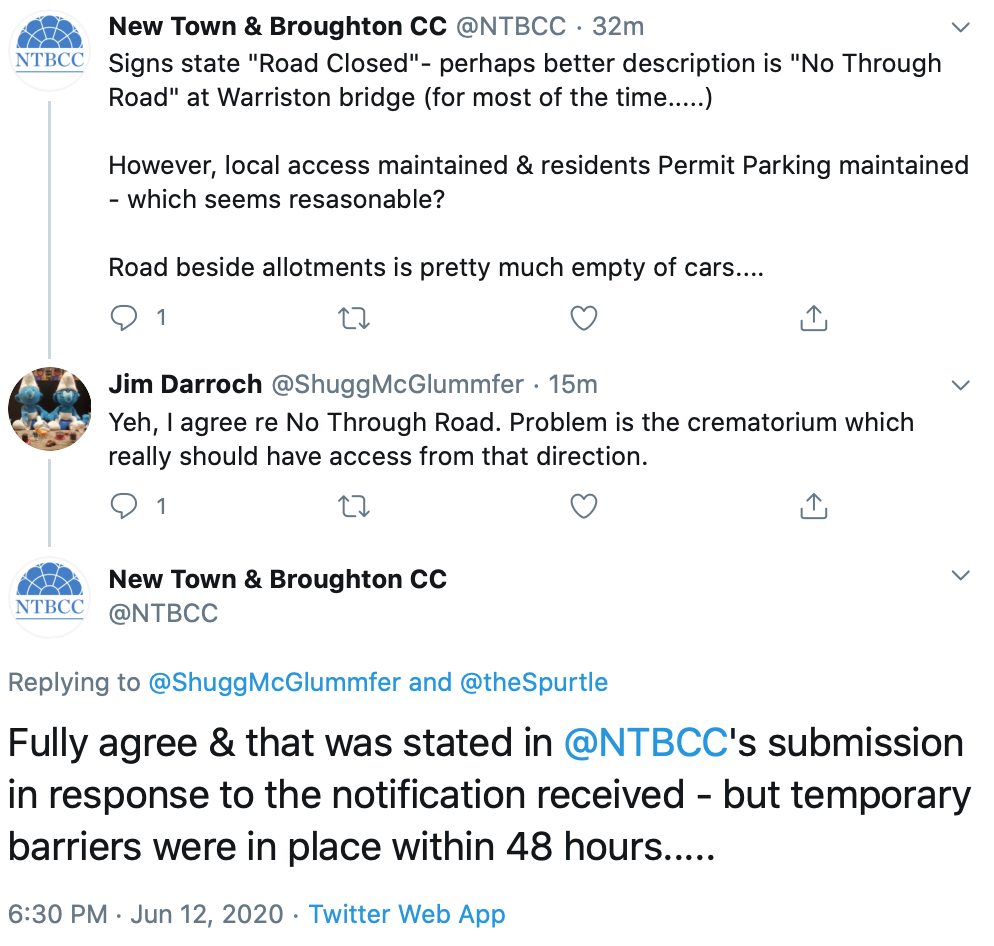
As Spurtle has reported on several occasions in recent weeks, there are widespread misgivings about the speed (and questionable democratic credentials) with which emergency measures are being drafted and enacted in response to the Covid-19 crisis.
Some people and organisations grit their teeth and push through that sense of unease. This seems to have been the general approach of the New Town & Broughton Community Council.
Others have been digging their heels in and arguing that even an emergency is no excuse for bad practice. This appears to be the emerging stance of Leith Central Community Council.
Changes in a hurry
The latest instance was prompted by the Spaces for People Team’s proposed redesignation of key parts of the road network to help pedestrians and cyclists travel safely while following physical distancing requirements.
The proposals affect cycle and taxi gates, segregated cycle lanes and footway widening on Forrest Road, the Mound, South Bridge, George IV Bridge, and North Bridge.
If approved under emergency delegated decision-making powers, they will be hurried through using a Temporary Traffic Regulation Order. Rather vaguely, though, the arrangements may become ‘semi-permanent in the longer-term subject to Scottish Government advice on social distancing’.
Unreasonable constraints on reasoned response?
Leith Central Community Council received notification of the proposals on 8 June, along with drawings for Forrest Road, the Mound, George IV Bridge, and South Bridge. (A fifth drawing for North Bridge was obtained separately from NTBCC's website.)
Along with over 30 other councillors and stakeholders, it was invited to respond within five business days.
LCCC’s vice convener Harald Tobermann says five days would be insufficient for a considered response to complex proposals, even at the best of times.
He therefore wrote back stating that LCCC is not in a position to respond formally and substantially while much of public and democratic life is curtailed under emergency powers and LCCC is unable to hold public, properly constituted meetings.
Problems with process
He noted particular problems. We quote:
1. While the proposed measures may well have merit in principle, we fear that the rushed progress from conception to enactment does not only undermine democratic principles, but, through unnecessarily hurried planning and hasty implementation, that the very aims these measures seek to promote may be discredited.
2. We note the absence of an explicit sunset clause, as would be appropriate for emergency measures.
3. We note that the attached plans sent to us did not include DRG. NO. TDD-637129-04 (North Bridge), although this is closest to our area and shows a southbound bus gate.
4. We note the absence of even a basic environmental impact assessment attempting to quantify excess pollution and delayed travel times caused by displaced traffic in neighbouring areas – including ours, the most densely populated in Scotland (Census 2011) – especially in view of the ongoing works at Picardy Place and the imminent resumption of the tram extension works.
Those are the overarching issues highlighted by LCCC. However, any individual wishing to respond on their own behalf, at whatever level of detail, can do so here by 5pm on Monday, 15 June 2020.
Matter of principle
On this occasion, LCCC is concerned about what it regards as ‘the procedural shortcomings of a foreshortened consultation process’.
It fears such flaws may impinge on the quality of the proposed measures and undermine public trust and support.
On another recent occasion, LCCC has also expressed doubts about the efficacy and fairness of exclusively virtual Planning consultations, particularly any such methodology for progressing the future of Stead’s Place without normal public exhibitions and properly constituted meetings.
Tension
The Covid-19 crisis has created palpable tensions about how we continue civic life now and for the foreseeable future.
Pragmatists like Spaces for People say, ‘Given the urgent nature of these works, normal expectations about community consultations cannot be fulfilled.’
Purists respond that this simply isn’t democratic enough, and that a dedicated inbox to collect public feedback after a decision will not serve.
There are no easy solutions. Expect a lot more of this as the effects of the coronavirus pandemic continue to unfold.
---------



